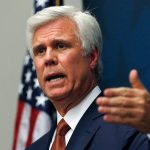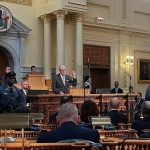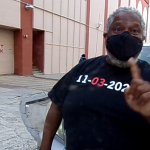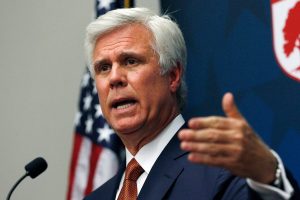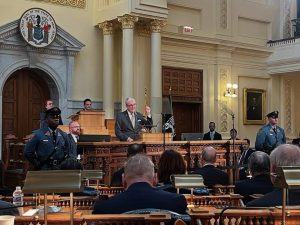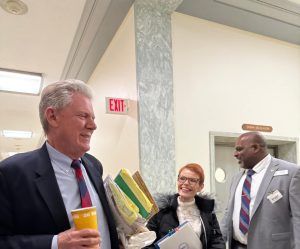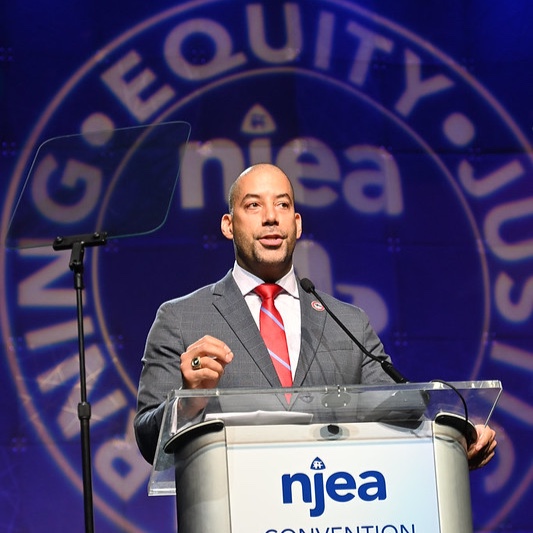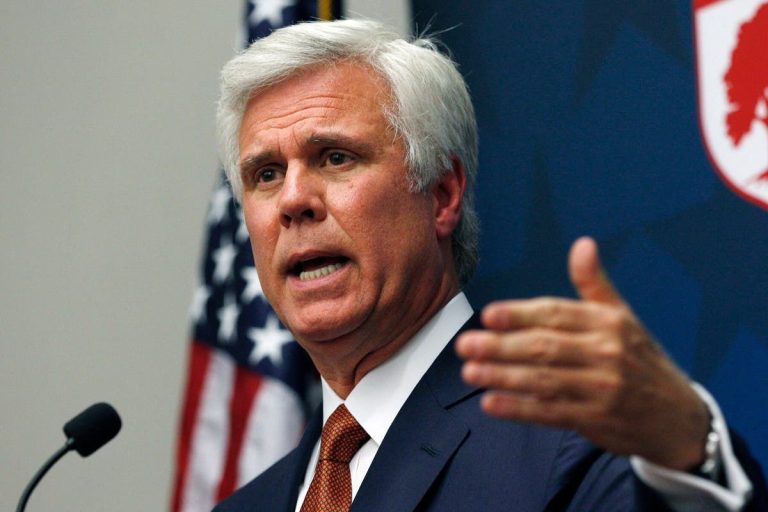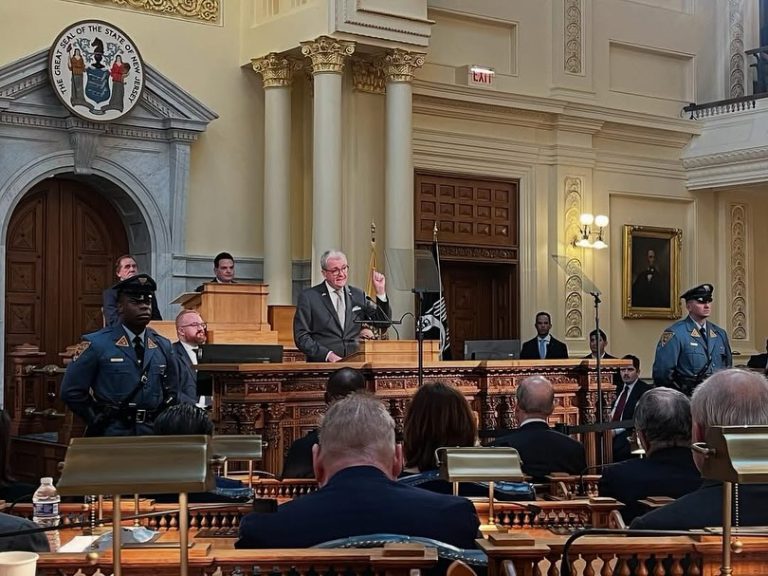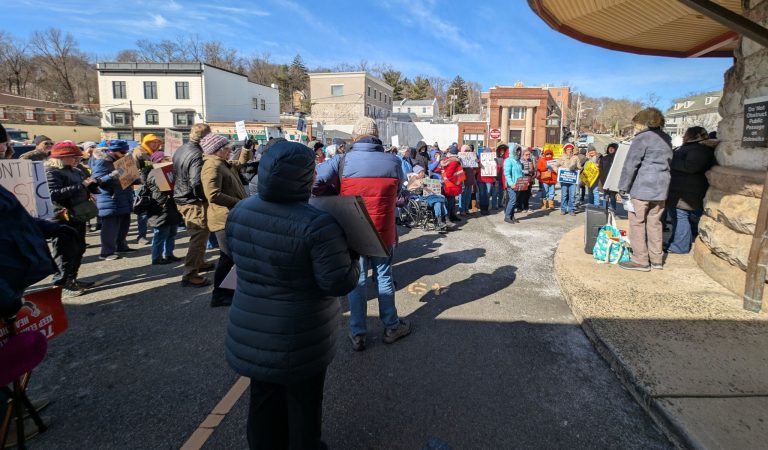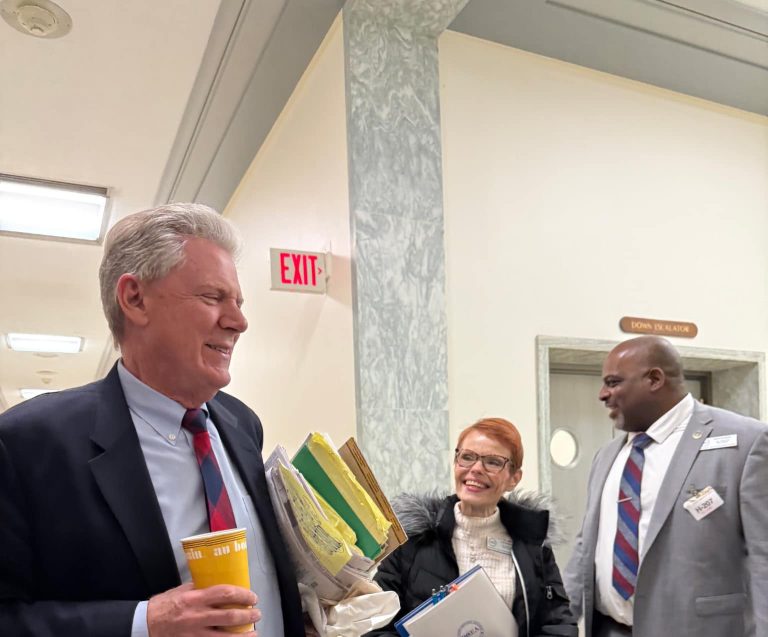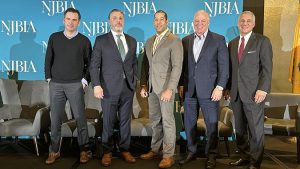This story is part of our Hard Look series, revisiting pivotal moments in the political careers of leaders aspiring to higher office. With Montclair Mayor Sean Spiller hinting at a gubernatorial run in 2025, we’re examining the controversies that have defined his tenure as both mayor and president of the New Jersey Education Association (NJEA). From allegations of illegal benefits to questions about NJEA’s political spending, we take a Hard Look at Mayor Sean Spiller.
Sean Spiller, head of New Jersey’s largest teachers’ union and mayor of Montclair, has begun testing the waters for a 2025 gubernatorial bid. But his early efforts are raising more questions than enthusiasm, particularly about the ethics and transparency of his leadership. At the heart of the controversy lies his dual role: representing taxpayers as mayor while presiding over NJEA, a union that has committed tens of millions of dollars to political campaigns—including, most likely, Spiller’s own.
Spiller’s dark money group, Protecting Our Democracy, is already running digital ads touting his “working class” credentials, funded in part by NJEA’s opaque spending practices. Critics argue that this spending prioritizes Spiller’s ambitions over educators’ interests, while teachers are largely left in the dark.
Spiller’s tenure as mayor has been marred by allegations that he and other Montclair officials illegally took health benefits they weren’t entitled to—an allegation reportedly under criminal investigation by the state Attorney General’s Office. Despite his NJEA salary of $360,000, Spiller allegedly claimed tens of thousands of dollars in benefits and waiver payments designed for full-time employees. The scandal came to light after Montclair’s former CFO, Padmaja Rao, filed a whistleblower lawsuit.
When confronted in a deposition, Spiller invoked his Fifth Amendment right against self-incrimination, refusing to answer questions about how he justified working “full-time” as mayor while leading the NJEA. He has since sought to keep the deposition sealed, with his lawyer claiming he is acting “out of an abundance of caution” to prevent misrepresentation. Critics argue that as a public official, Spiller owes his constituents full transparency.
The whistleblower claims Spiller retaliated against her for questioning the legality of his benefits. After she sent an email to human resources challenging these practices, Spiller allegedly removed her from key committees and sought negative feedback about her performance from council members. Spiller denies retaliating, saying he was merely inquiring about her work.
But the allegations don’t stop there. Spiller is also accused of signing off on an illegal, no-bid contract with a politically connected law firm to investigate racial bias claims within Montclair’s fire department. The firm, O’Toole Scrivo, found no evidence of bias, contradicting an earlier internal investigation. Critics suggest the decision to hire the firm, whose founder is a Republican donor with ties to powerful Democrats, was politically motivated.
Spiller’s dual role as mayor and NJEA president has raised persistent questions about conflicts of interest. While serving on the Montclair council, he resisted recusing himself from decisions involving the school budget until a court ordered him to step aside. His election as mayor prompted voters to strip the mayor’s power to appoint school board members, underscoring public concern about his influence.
Meanwhile, at the NJEA, Spiller oversees one of the nation’s most lucrative teachers’ unions, whose opaque spending practices are now under fire. Although teachers must opt in to the NJEA’s traditional PAC, the union also operates a dark money group, Garden State Forward, funded by mandatory dues. This group has funneled millions into political campaigns, often without members’ knowledge or consent.
Garden State Forward’s spending decisions are made behind closed doors by NJEA executives—including Spiller himself. Critics argue this creates an inherent conflict of interest, as Spiller could direct funds to his own dark money group, Protecting Our Democracy, for his gubernatorial campaign.
“Sean Spiller has built a political machine using teachers’ dues, and it’s operating in the shadows,” said Michael Lilley of the Sunlight Policy Center. “Teachers have no idea where their money is going or how it’s being used to further his personal ambitions.”
The NJEA’s top executives, including Spiller, earn salaries far exceeding those of their counterparts nationwide. While Spiller’s $360,000 salary may not match the $2.5 million earned by former NJEA executive director Ed Richardson, the optics of him accepting additional benefits—illegally, according to allegations—are damning.
Spiller has yet to fully address these allegations or the broader concerns about his leadership. His reluctance to be transparent with Montclair taxpayers or NJEA members raises a critical question: Is he prepared to lead New Jersey?
As Spiller courts higher office, his record as mayor and union leader is under intense scrutiny. The allegations of illegal benefits, retaliation, and political cronyism, combined with NJEA’s murky spending practices, present a significant obstacle to his gubernatorial ambitions.
For Spiller, the road to Trenton begins with answers—and so far, he has provided few. If he wants to lead New Jersey, he must prove he’s willing to lead with integrity and transparency. Until then, the controversies surrounding him will cast a long shadow over his political future.
